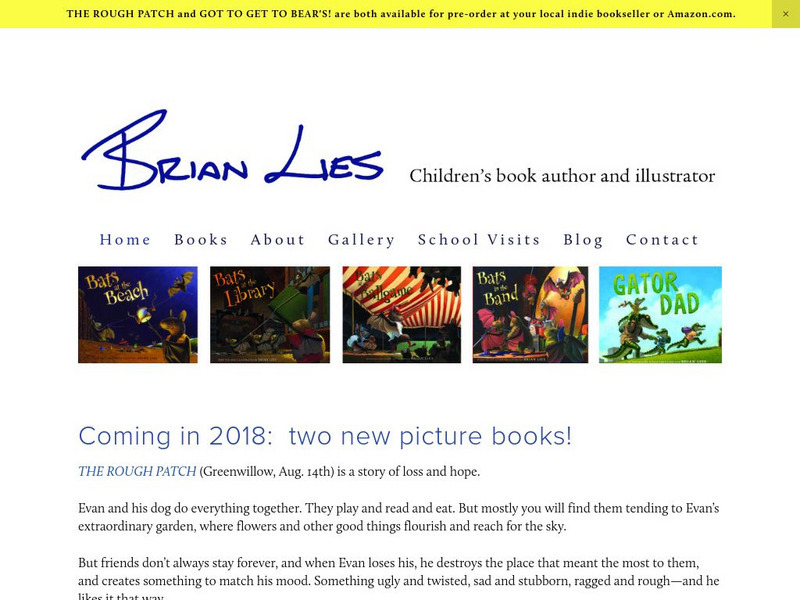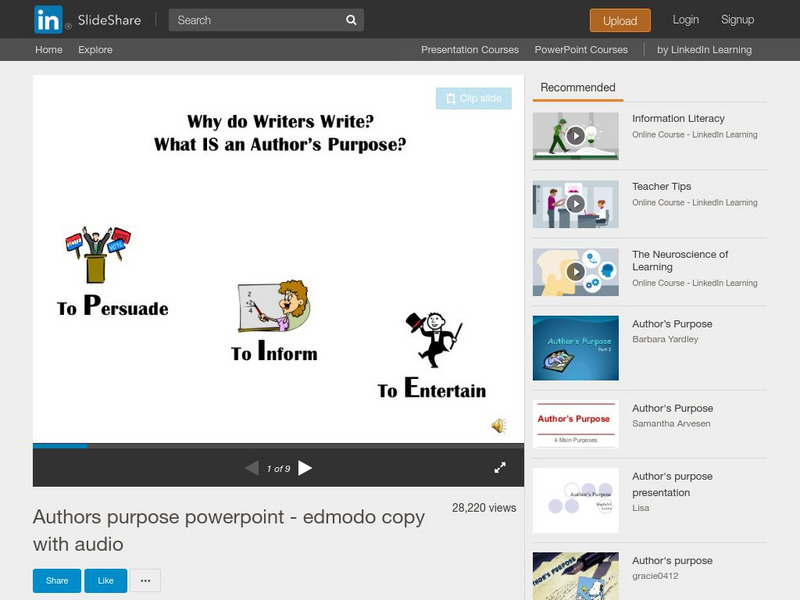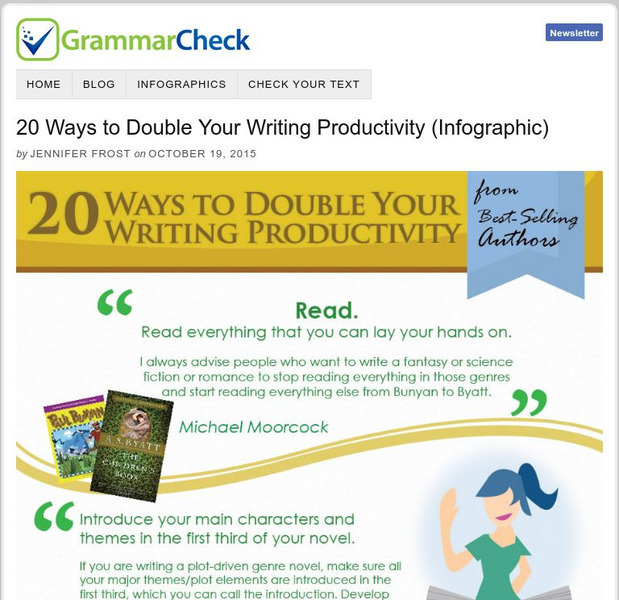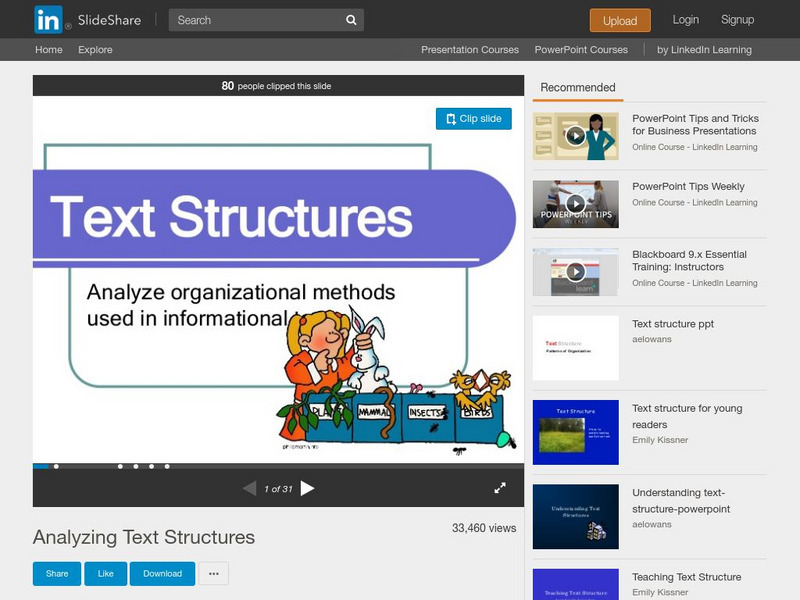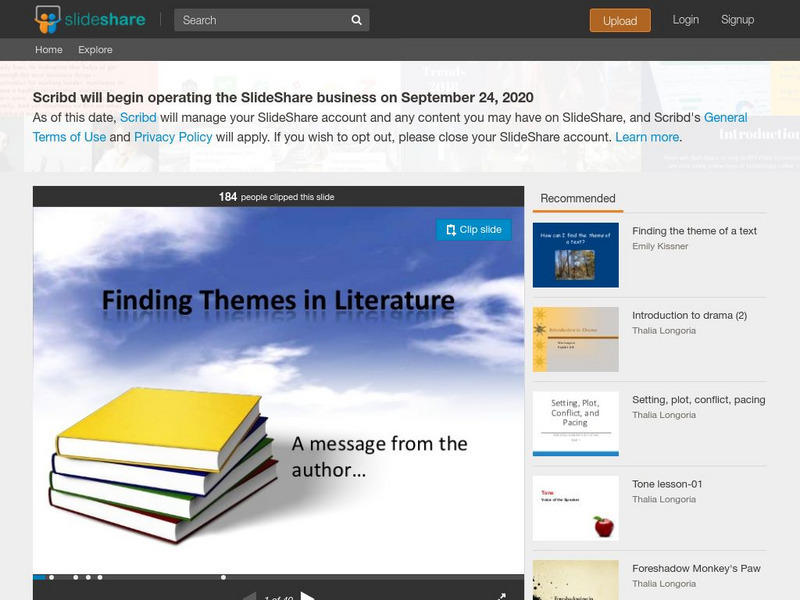Sophia Learning
Sophia: Dialoguing With the Author: Tutorial
In this slideshow tutorial, students will review the reading strategy of questioning the author, also referred to as "dialoguing" with the author. The "dialoguing with author" strategy is explained, and examples of how to use the...
Tom Richey
Slide Share: Discovering an Author's Point of View
A slide show with twenty-eight slides with information on how to determine an author's purpose to entertain, to inform, or to persuade his/her audience.
Tom Richey
Slide Share: Author's Purpose and Point of View
This downloadable slideshow focuses on how an author's purpose and point of view work together in fiction and nonfiction, and how to identify the point of view.
Daily Teaching Tools
Daily Teaching Tools: Project Author Study
This Daily Teaching Tools resource provides information about an author study. Students will find a multi-step project to help students effectively investigate an author during research. Reproducible graphic organizers are provided.
Washington State University
Washington State University: American Authors: Bibliography on "Rip Van Winkle"
This site provides an extensive bibliography of works by and about "Rip Van Winkle" and the author Washington Irving. Good site for finding resources.
Daily Teaching Tools
Daily Teaching Tools: Author Study Letter Rubric
This Daily Teaching Tools resource provides a rubric. Each student will write a letter to an author of choice, and afterword, this rubric may be used to assess each letter.
Tom Richey
Slide Share: Author's Purpose 8th Grade
A slideshow with twenty slides with information and examples of four different purposes an author can have for writing a text: to entertain, to persuade, to express, or to inform/explain.
Other
Prezi: Author's Purpose
Slideshow provides an explanation of the author's purpose which is to reflect, inform, persuade, or entertain (RIPE).
Tom Richey
Slide Share Author's Purpose
A slide show with five slides with examples of three different types of author's purpose: to entertain, to inform, and to persuade.
Other
Mesa Public Schools: Author's Point of View [Pdf]
Chart defines the three different points of view authors can use to express their ideas.
Other
Author and Illustrator Brian Lies
Learn about Brian Lies, an author and illustrator of children's books. Find a list of books he has written and/or illustrated and learn a bit about his life.
Daily Teaching Tools
Daily Teaching Tools: Sample Author Study
This Daily Teaching Tools resource provides an exemplar of the expectations for an independent class project. Each student must study an author and meet the criteria listed on the page.
Polk Brothers Foundation Center for Urban Education at DePaul University
De Paul University: Center for Urban Education: Use Evidence to Show How a Writer Supports
This Center for Urban Education resource provides a downloadable graphic organizer for students to use when analyzing the evidence that authors use to support a claim. RI.9-10.5 ideas/claims developed. CCSS.ELA-Literacy.CCRA.R.8
Georgia Department of Education
Ga Virtual Learning: Fable Chart [Pdf]
This is a PDF Fable Chart designed for students to complete as they read a fable; it includes the title and author, the animal character, human characteristics, the individual elements of a short story, and the moral or lesson.
Tom Richey
Slide Share: Why Do Writers Write?
A slide show with nine slides explaining the author's purpose to persuade, inform, or entertain.
Quia
Quia: Parts of a Book
This website provides chart lists and defines the parts books all readers should know, such as the title, author, table of contents, and glossary. Click on "Back to activity," to be taken to four games, which will help students learn and...
Grammar Check
Grammar Check: 20 Ways to Double Your Writing Productivity (Infographic)
This infographic is provided to help students with writing a novel. Tips from famous authors are included to help students write efficiently and confidently.
Other
Prezi: Inference Lesson 8th Grade
Learn what it means to make an inference by combining the author's clues and your background knowledge.
Other
Author Stream: Make an Inference
A slideshow with twelve slides giving information, examples, and practice exercises on making inferences
ReadWriteThink
Read Write Think: Nonfiction Pyramid
A printable pyramid for use with nonfiction texts while students identify the main ideas and supporting details within a text. Students also determine author's purpose and key vocabulary words. Directions on how to use this type of...
Tom Richey
Slide Share: Text Structures: Analyze Organizational Methods
This slideshow focuses on text structures for informational texts including how the author's purpose helps determine the organizational pattern to use and how the reader can use clues to identify the text structure used. Five...
Sophia Learning
Sophia: Punctuation and Style
A nine-slide presentation discussing how to use punctuation to create or reflect the author's style. W.9-10.1d Style/tone/conv
Sophia Learning
Sophia: Analyzing the Author
A slideshow with ten slides that discusses the difference between a subject and a theme and gives several examples of each found within a variety of popular classical and modern texts.
Tom Richey
Slide Share: Finding Themes in Literature
A slide show with forty slides with explanations, examples, and information on how to determine the theme of a text. RL.9-10.2 and RL.11-12.2 Analyzing Theme.
Other popular searches
- Authors Purpose
- Author's Purpose
- Author Study
- Authors Point of View
- Authors Purpose Powerpoint
- Authors Purpose Mini Lesson
- Author Research
- Authors Purpose Passage
- Georgia Authors
- Authors Study
- Teaching Author's Purpose
- Student Authors
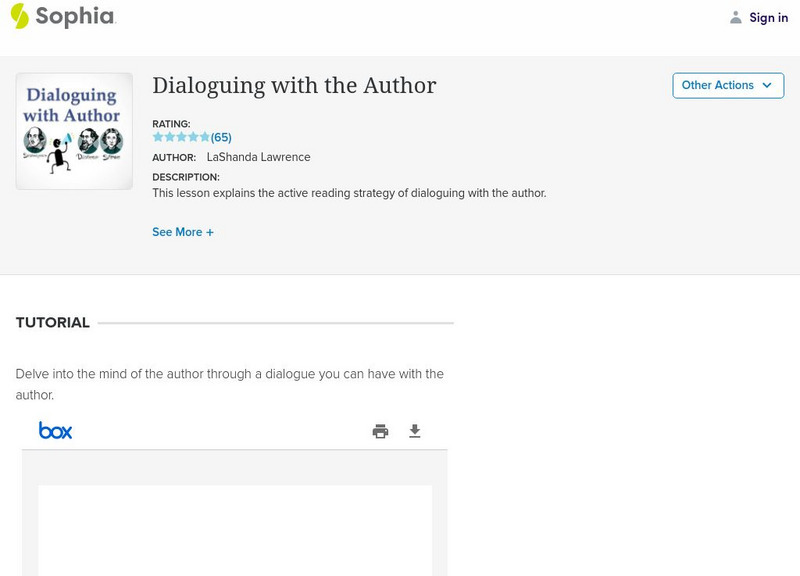
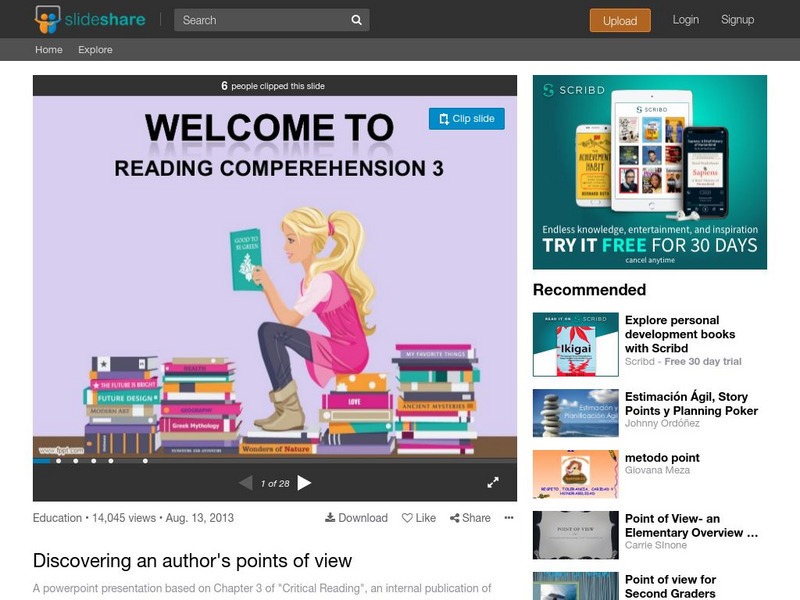

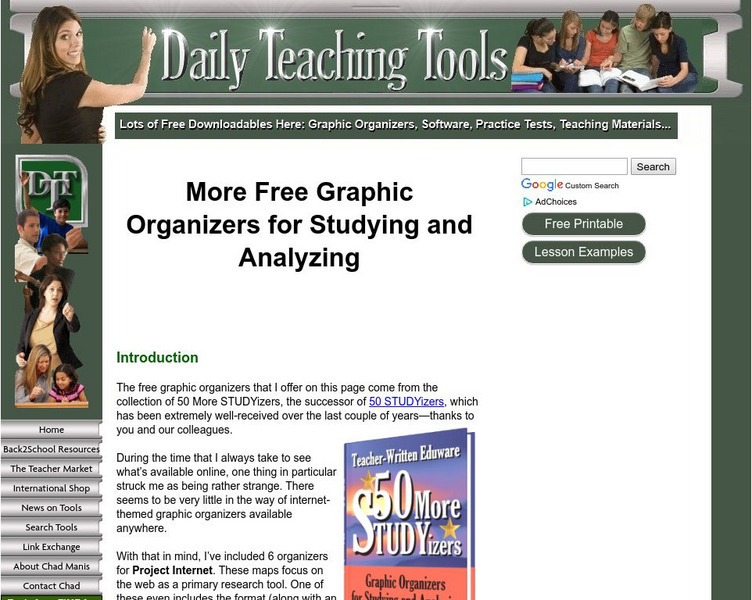

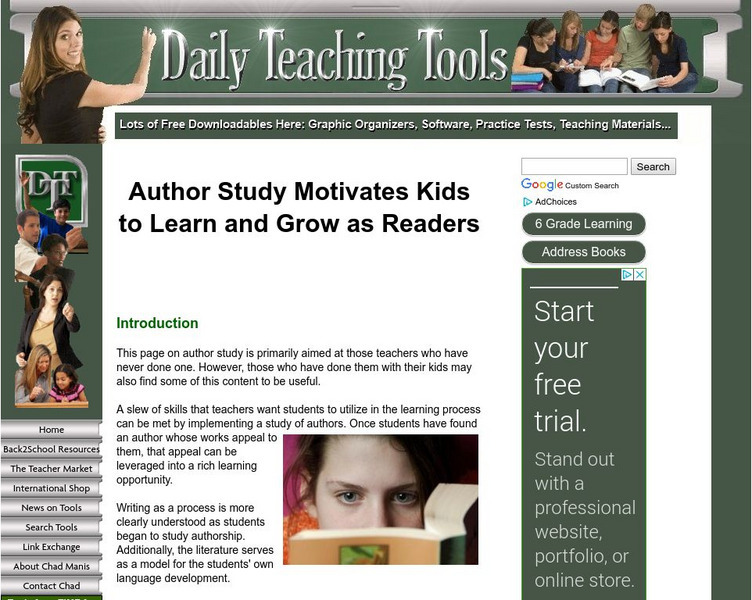
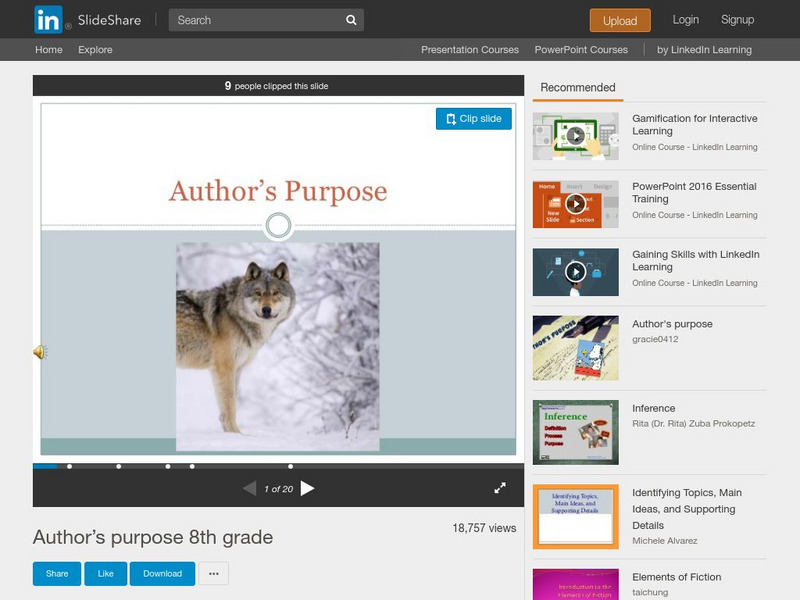


![Mesa Public Schools: Author's Point of View [Pdf] Graphic Mesa Public Schools: Author's Point of View [Pdf] Graphic](https://d15y2dacu3jp90.cloudfront.net/images/attachment_defaults/resource/large/FPO-knovation.png)
